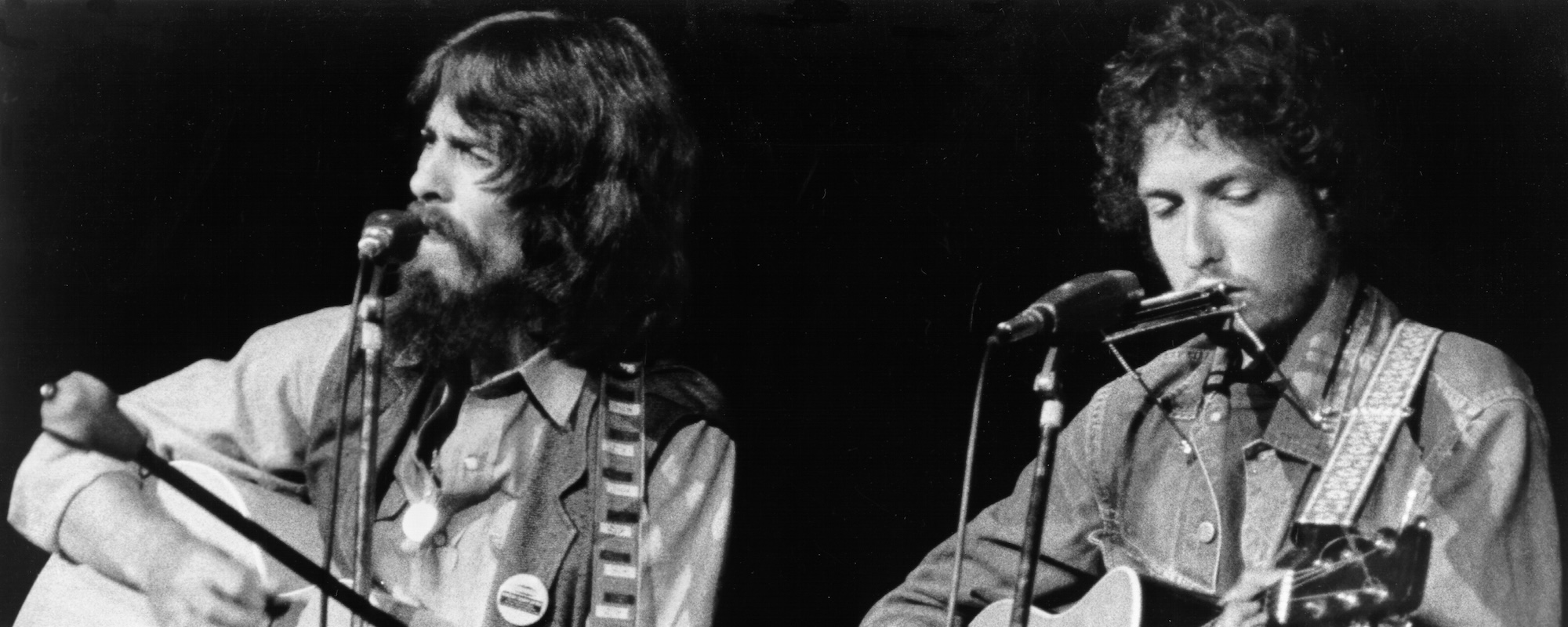There were a lot of layers to the Man in Black: determined, charming, spiritual, hedonistic, downtrodden, inspirational, creative, romantic, funny, to name a large few, and each record he put out highlighted one small piece of the composite man from Arkansas we knew and loved, Johnny Cash. But only one album showed off what Cash himself described as the “worst, evil side” of him.
Videos by American Songwriter
The words might seem harsh at first, until one considers that the opening track of the album starts with the lines, “Delia, oh, Delia, Delia all my life / If I hadn’t shot poor Delia, I’d have had her for my wife.”
Johnny Cash Said This Record Showed His “Worst, Evil Side”
Darkness lives in all of us, from our morbid curiosities about death to our shadowier tendencies to our fascination with horror and violence. Johnny Cash was no exception, and few songs in his discography toy with this macabre notion like “Delia’s Gone,” the opening track to his 1994 album, American Recordings. The song’s narrator describes shooting his unfaithful wife “down in Memphis” and, in true country ballad fashion, ending up in jail, haunted by her ghost.
It’s not exactly the sunshiniest opening track to what was Cash’s 81st album, but that’s what he was going for. “The way I see this album, it’s like showing the worst, evil side of me,” Cash explained to Guitar Player the year of his album release.
“Then maybe a little of the good side, whatever that is. It’s showing the evil that the mind goes through from “hard to watch her suffer, but with the second shot she died” in “Delia’s Gone” all the way to redemption. There are two redemption songs on the album—one I wrote called “Redemption” and [Tom Waits’ “Down By The Train”]. Then there’s a prayer, “Why Me Lord?” It’s got everything in it that I feel, that I can remember feeling, the emotions that I can remember going through.”
A Serious Album About Not Being So Serious All the Time
Johnny Cash’s 1994 record, American Recordings, captures the iconic country artist at a unique point in his career, as one would expect from an artist’s 81st album. Cash told Guitar Player that Marty Robbins had previously inspired him to do a record consisting solely of songs he wanted to play, which is how American Recordings ended up featuring songs by Leonard Cohen, Kris Kristofferson, Jimmy Driftwood, and traditional folk songs. It was a solemn and impressive collection of music, but it was also a reminder to Cash not to be too serious.
“There are flippant things, like “to hell with it, let the train blow the whistle when I go.” I’ve taken so many things seriously, but then I’m thinking maybe it’s not so good to take myself so seriously. I’m singing a lot about death, hell, danger, trouble, killing, murder, blood, and redemption. I thought about this train that runs by the House of Cash [Cash’s estate in Tennessee]. They blow the whistle every time they pass here, because I moved this old train station here from Madison.”
“It’s on their orders to blow the whistle at the House of Cash,” he continued. “That’s my whistle. I was thinking about that train when I wrote that song. Why complicate everything? Just let the train blow the whistle when you go. That’s all I want.”
Photo by Michel Linssen/Redferns









Leave a Reply
Only members can comment. Become a member. Already a member? Log in.